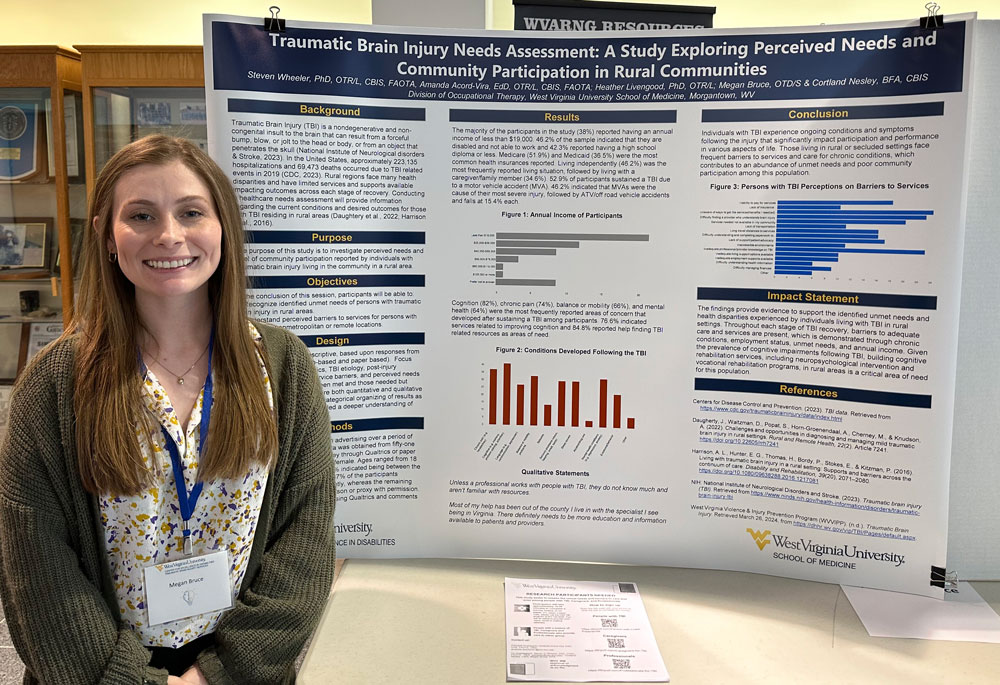Understanding the needs of persons with traumatic brain injury in West Virginia

WVU occupational therapy doctoral student Megan Bruce presents findings from the needs assessment at the 2024 WV TBI Conference
Traumatic brain injury (TBI) is a leading cause of death and disability in the United States. Common long-term effects of moderate to severe TBI include impaired hearing, vision and motor skills; changes in cognition; altered mood and emotions; behavioral challenges; and changes in sensory perception (CDC, 2023). Individuals with moderate to severe TBI may experience long-term residual deficits and need ongoing care to assist with their recovery and participation in home and community activities. Family members often serve as caregiver, a role that encompasses unique stressors and challenges. Dr. Steven Wheeler and Dr. Amanda Acord-Vira are leading a team of investigators at the WVU Center for Excellence in Disabilities to conduct a needs assessment to better understand the perceived needs of persons with TBI and their caregivers in West Virginia. Community participation and life satisfaction following TBI may be uniquely impacted in rural regions, which are associated with health disparities including limited services and supports.
Wheeler and Acord-Vira are leading the TBI needs assessment as principal investigators for two funded programs – the West Virginia TBI Program funded by the West Virginia Department of Health and Human Resources and the TBI partnership grant funded by the Association for Community Living. By identifying unmet needs, the research team hopes to optimally prioritize and implement brain injury advocacy efforts, program development, educational initiatives and service utilization. The team, which includes TBI program manager Cortland Nesley and WVU occupational therapy doctoral student Megan Bruce, will provide a public update on the needs assessment in June 2024. Additionally, Bruce provided updated survey results as part of the West Virginia TBI Conference in March 2024. According to Bruce, current findings indicate that the most reported unmet needs are lack of awareness about where to get services to support TBI recovery, and a lack of understanding among healthcare providers specific to brain injury recovery and rehabilitation.
If you are a person with a TBI, a caregiver or healthcare provider and would like to participate in this important survey, please access it below.
